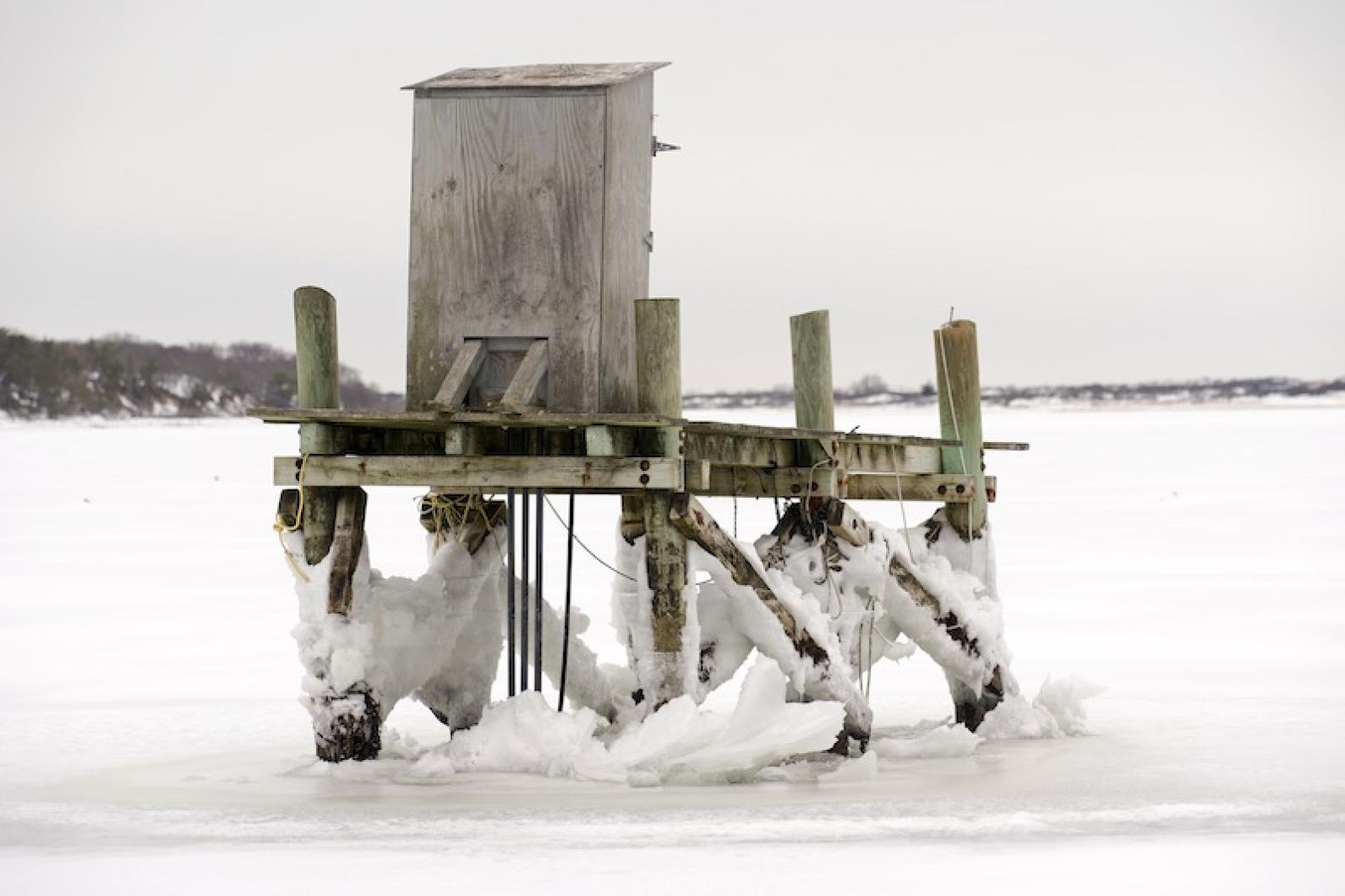A federal court case that could decide whether the Wampanoag tribe has the right to open a gaming facility in Aquinnah has inched forward with an interim ruling that allows a group of town taxpayers to remain a party to the case.
In a 33-page decision issued last week, U.S. District Judge Dennis Saylor ruled on several motions in a lawsuit brought by the commonwealth of Massachusetts against the Wampanoag Tribe of Gay Head (Aquinnah), but left undecided the central issue in the case.
Former Gov. Deval Patrick went to court in December 2013 to block the tribe from making any moves to convert an unfinished community center in Aquinnah into a high-stakes bingo parlor. The action came after former tribal chairman Cheryl Andrews-Maltais, then seeking re-election, announced the tribe was proceeding with the project. Ms. Andrews-Maltais was subsequently defeated and her successor Tobias Vanderhoop has been more circumspect about the tribe’s plans.
Since then, whether the tribe has any real intention of opening a casino on the Vineyard has been eclipsed by the complicated questions surrounding whether it legally could do so if it wanted to.
The commonwealth contends that what happens on tribal lands is subject to state and local laws because the tribe gave up rights as a sovereign nation in 1983 when it signed a land claims settlement agreement with the state, the town of Gay Head (now Aquinnah) and the Gay Head Taxpayers’ Association (now the community association). Operating a gaming facility without a license from the state would violate that agreement, the state argues. The state's position is backed by case law; in a landmark 2004 ruling the state Supreme Judicial Court said the tribe waived its sovereign immunity when it signed the settlement agreement.
The tribe takes the position that the settlement agreement was superseded in 1988 when Congress passed the Indian Gaming Regulatory Act, which created a regulatory procedure and a national commission to oversee gaming on tribal lands.
The case has been procedurally complicated. The complaint was originally filed in state court but the tribe quickly removed the action to the federal district court. Last August, Judge Saylor allowed the town and the Aquinnah/Gay Head Community Association to intervene on the side of the state. The tribe later filed counterclaims against the state and state officials.
The recent memorandum and order came on a series of motions by both sides of the case. The tribe asked the judge among other things to remove the taxpayers association from the case, claiming it had sovereign immunity from being sued by that group. State officials asked that the tribe’s counterclaims be dismissed, arguing the state has its own sovereign immunity from suit.
In a lengthy and detailed analysis, Judge Saylor mostly ruled against the tribe, finding that while the tribe had waived its sovereign immunity in the settlement agreement, the state had not done so.
But the judge also said the tribe’s counterclaims against the governor, attorney general and chairman of the Massachusetts Gaming Commission, acting in their official capacities, could stand.
And he made it clear that the central issue of whether the federal Indian gaming law takes precedence is still open.








Comments
Comment policy »